A New and Exotic Visitor at the Acropolis…
Michael Rakowitz’s acclaimed “Lamassu of Nineveh…
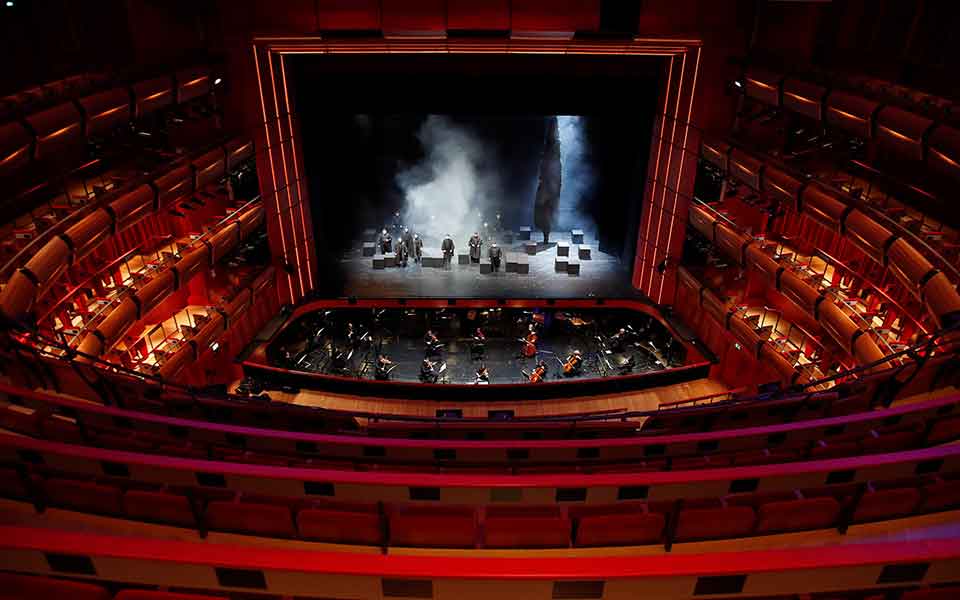
© AP Photo/Thanassis Stavrakis
Dozens of museum exhibitions, theater productions, discussion panels and historical re-enactments were planned in Greece for this year to commemorate the bicentennial of the 1821-1832 Greek War of Independence.
But due to the coronavirus pandemic, mezzo-soprano Artemis Bogri and her fellow singers stepped onstage in an empty theater to perform the Greek National Opera’s new production of “Despo,” one of the events marking 200 years since the war that resulted in Greece’s independence from the Ottoman Empire and rebirth as a nation.
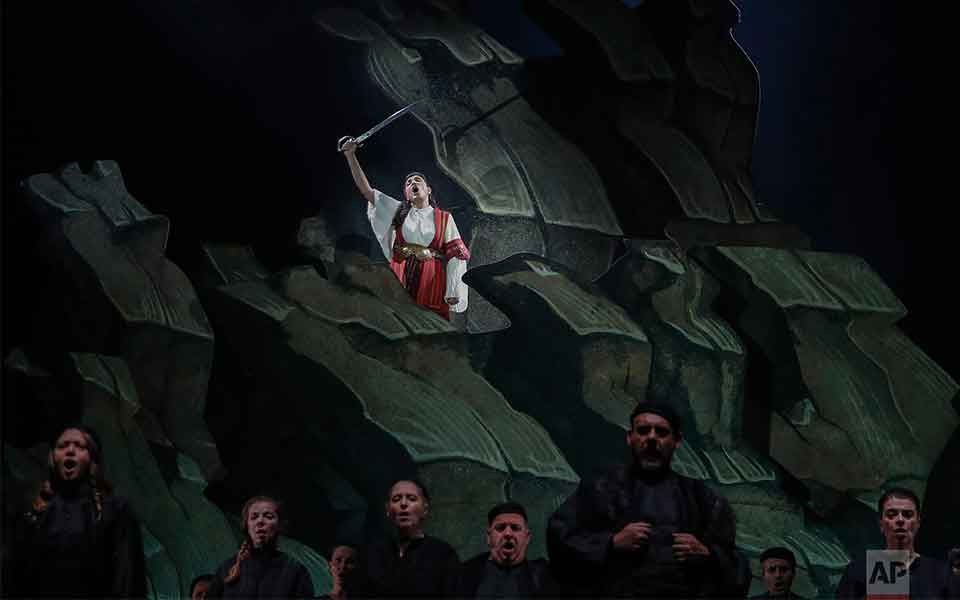
Greek soprano Artemis Bogri holding a sword, sings during a rehearsal of “Despo-Greek Dances” Opera and dance performance in Athens, March 4, 2021.
© AP Photo/Thanassis Stavrakis
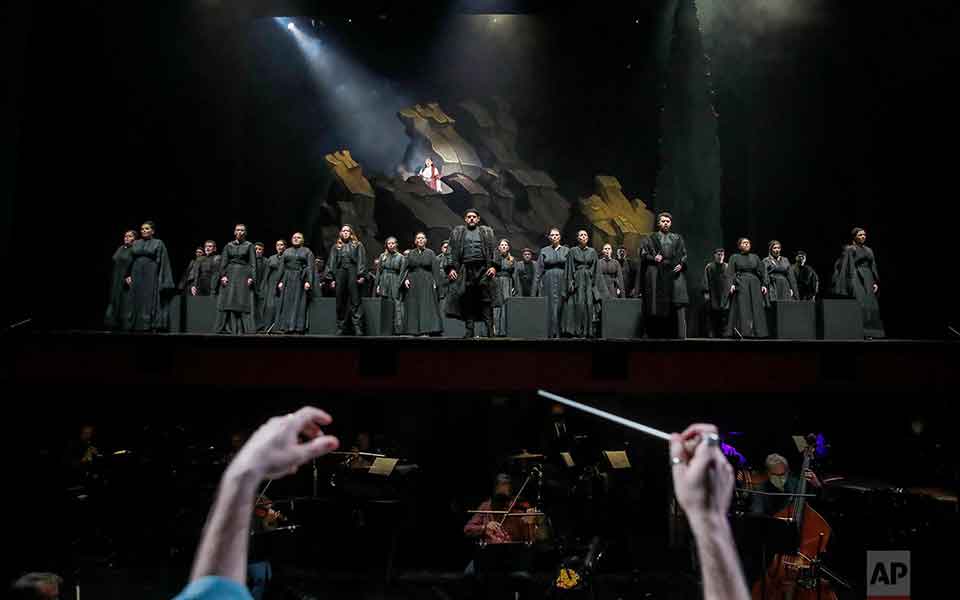
Greek soprano Artemis Bogri sings during a rehearsal of “Despo-Greek Dances” Opera and dance performance in Athens, Thursday, March 4, 2021.
© AP Photo/Thanassis Stavrakis
With her sword raised but defeat certain, the title character in composer Pavlos Carrer’s 1875 opera chooses death over captivity, detonating ammunition stored in a fortress as Ottoman forces close in.
“Fire! Fire!” Bogri sang in Despo Botsi’s final moments as machine-generated smoke billowed out over the stage during a performance recorded for streaming-only events scheduled for May.
“I can tell you, that sword is real and it’s heavy,” the soloist chuckled after the show, still costumed in a headscarf, brocade waistcoat and wide-sleeved pleated blouse.
“Artists prepare two or three months for a production and then take that work to an audience,” she said. “Now, we have to generate that energy with no one there. That’s not easy.”
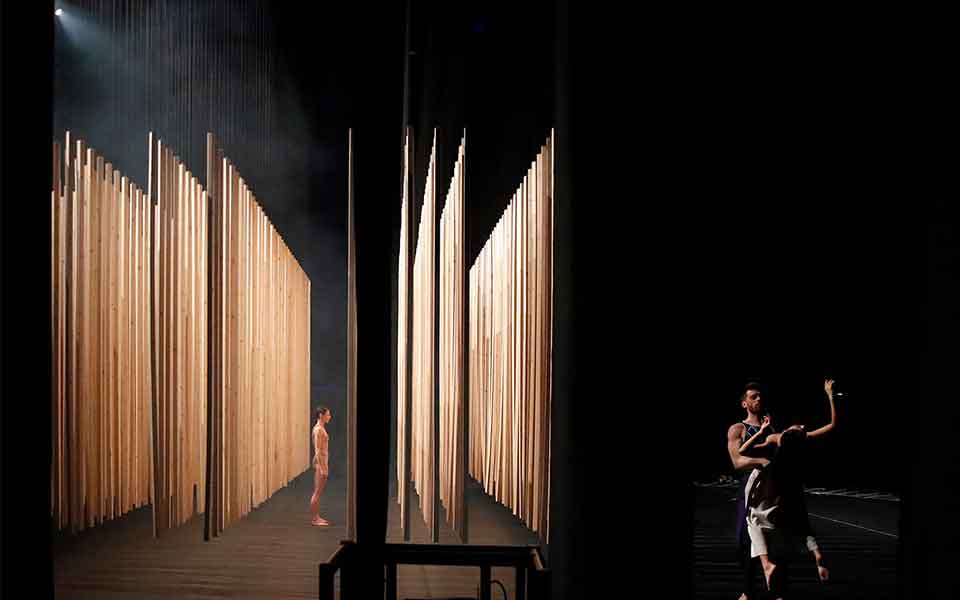
Giannis Mitrakis holding Elpida Skourou, right, and Elena Kekkou, dancers of the Greek National Opera Ballet, perform during a rehearsal of “Despo-Greek Dances” Opera and dance performance in Athens, Friday, Feb. 26, 2021.
© AP Photo/Thanassis Stavrakis
Greece gained its independence after a grueling nine-year war. A century later, the Greeks were on the losing side in Asia Minor as modern Turkey was created out of the collapsing Ottoman Empire.
Bicentennial events intended to display Greece’s modern accomplishments have been postponed, scaled back or moved online because of the pandemic. National parades by school children set for Greece’s March 25 independence day holiday were canceled Friday amid the latest surge in COVID-19 infections.
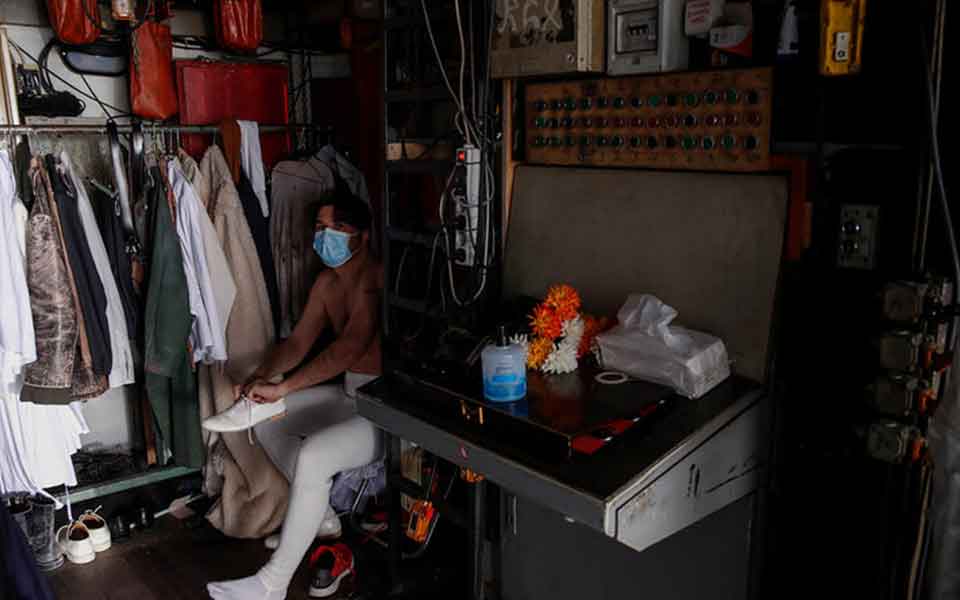
Actor Konstantinos Arnokouros wearing a face mask for the curb of coronavirus, prepares during a rehearsal of “The Free Besieged” at the Greek National Theater in Athens, Tuesday, March 2, 2021.
© AP Photo/Thanassis Stavrakis
Like the National Opera, other cultural institutions formed small work teams to salvage their celebration plans even as they faced acute financial pressure due to lockdown measures now in their fifth consecutive month.
Actors and singers working on the production of “Despo” wore masks during most rehearsals, many driven by a stubborn resolve, Bogri said.
“It’s the creative arts that helped us keep going” during the pandemic, she said. “But the sad irony is that, after all this is over, there will be fewer of us left. A large part of the arts world will be s wept away.”
The Associated Press
Michael Rakowitz’s acclaimed “Lamassu of Nineveh…
This season, the iconic Athens venue…
Twenty-nine rare antiquities spanning 5,000 years…
Cinema meets conservation as Alonissos launches…